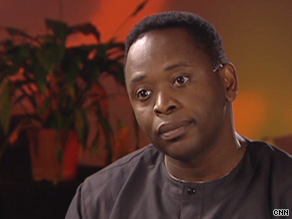
A $15.5 million payout made by oil giant Shell to settle a lawsuit brought against it by relations of executed Nigerian writer Ken Saro-Wiwa and other activists will allow the families of the victims to move on with their lives, Saro-Wiwa’s son has told CNN.
The New York lawsuit — brought to court by the Center for Constitutional Rights on behalf of Saro-Wiwa’s family and others in 1996 — accused Shell’s Nigerian subsidiary of complicity in the writer’s 1995 hanging and the killings or persecution of other environmental activists in the Niger Delta. Nigeria’s Ogoni people have complained for years that Shell was allowed to pollute its land without consequences. Saro-Wiwa’s death sparked a worldwide outcry, and his movement ultimately forced Shell out of the oil- and gas-rich Ogoniland region. “It enables us to draw a line under the past and actually face the future with something tangible, some hope that this is the beginning of a better engagement between all the stakeholders in this issue,” Ken Saro-Wiwa Jr. told CNN.
Don’t Miss
Shell to pay $15.5M to settle Nigeria claims
Transcript: Justice is always hard won
TIME.com: Nigeria’s Deadly Days
Shell said it “had no part in the violence that took place” but called the settlement “a humanitarian gesture to set up a trust fund to benefit the Ogoni people.” Shell fought the lawsuit until last week, when a federal appellate court ruled that the plaintiffs could sue the company’s Nigerian subsidiary in American courts, overturning a March decision in the company’s favor. Saro-Wiwa said the case set a precedent for oil companies operating in regions such as West Africa by demonstrating that they could “be brought to trial in America for human rights violations in Africa.” Watch Saro-Wiwa discuss how he hopes the case will set a precedent »
“Justice is always hard won… It took 13 years to go through the legal process but clearly before we started this corporations throught they could almost operate with impunity but now the legal landscape has changed,” he said. Roughly half of the settlement will go into a trust fund to help the people of Nigeria’s Ogoni region, according to court papers.